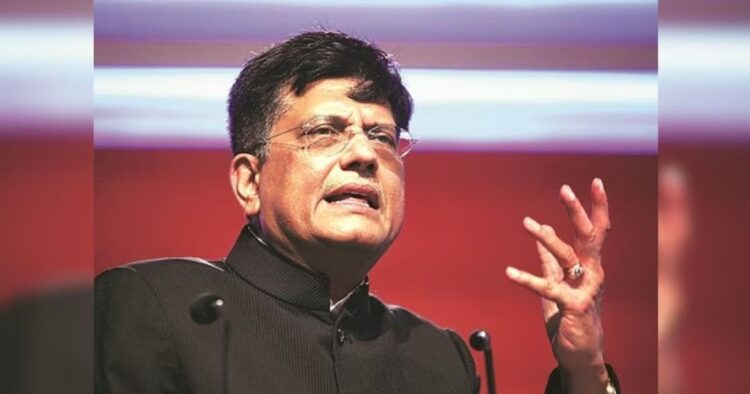In a recent address at the Rajya Sabha, Union Minister Piyush Goyal emphasized the profound significance of the Grand Temple in Ayodhya, stating that it serves to fortify Bharat’s democratic values and celebrate the nation’s rich heritage. Goyal underscored the temple’s role in awakening national consciousness among Bharat’s vast population, numbering 140 crore. He hailed it as a symbol of Bharat’s developmental journey and a sacred pilgrimage site deeply rooted in the country’s cultural fabric.
Goyal paid tribute to Prime Minister Narendra Modi’s unwavering dedication, recalling Modi’s rigorous 11-day fast preceding the Pran Pratishtha ceremony at the Ram Mandir in Ayodhya. He lamented the lack of recognition accorded to former Prime Minister Narsimha Rao by the Congress party, contrasting it with Modi’s inclusive approach to honoring leaders regardless of political affiliation. Goyal criticized the Congress for allegedly neglecting Rao’s contributions and failing to honor his memory appropriately.
The minister lauded PM Modi’s visionary goal of propelling India towards development and prosperity by 2047. He commended Modi’s forward-thinking initiatives and comprehensive strategies aimed at realizing this ambitious vision. Goyal expressed confidence in the forthcoming “Amrit Kaal” (auspicious time), predicting India’s evolution into a developed nation under the guidance of the upcoming generation.
Reflecting on Modi’s pivotal role in the Ram Mandir movement, Goyal recounted the Prime Minister’s initiation of the Ram Shila Poojan in 1989, symbolizing public participation in the temple’s construction. He highlighted Modi’s steadfast commitment to realizing this vision, despite obstacles, and praised his leadership during the foundation stone-laying ceremony, which marked a significant milestone in the temple’s construction.
Goyal elaborated on the international recognition garnered by PM Modi’s efforts, citing his participation in the 1998 International Ramayan Summit in Mauritius, where he shared insights into the significance of the Ram Mandir movement. The minister emphasized Modi’s commitment to fulfilling promises, as evidenced by the BJP’s resolution letter in 2014 expressing dedication to the temple’s construction.
In addition to its spiritual significance, Goyal emphasized Ayodhya’s transformation into a modern smart city, showcasing infrastructure developments such as the remarkable railway station and the Maharishi Valmiki airport. He highlighted initiatives like the installation of the world’s largest solar street lights, aligning with PM Modi’s broader vision of promoting clean energy and empowering disadvantaged communities.
In conclusion, Goyal reiterated the profound impact of the Grand Temple in Ayodhya, not only as a religious landmark but also as a testament to India’s democratic values, cultural heritage, and ongoing journey towards progress and development. He emphasized the collective efforts of the nation in realizing this historic endeavor, symbolizing unity, resilience, and national pride.

















Comments